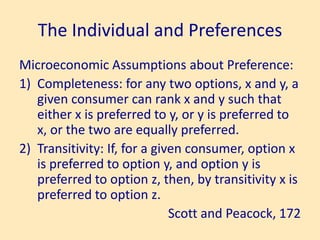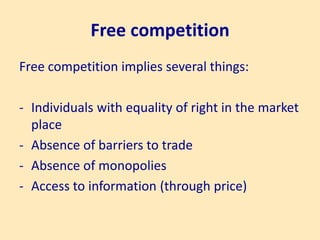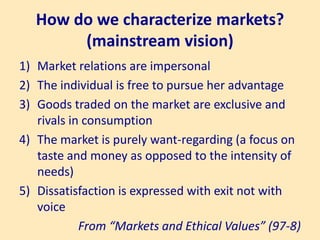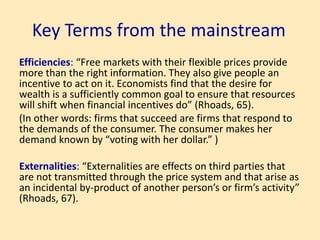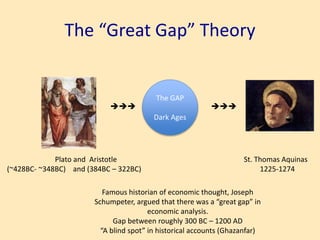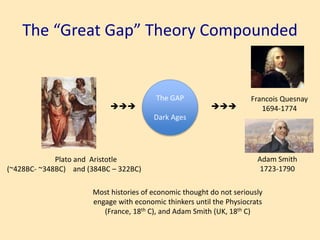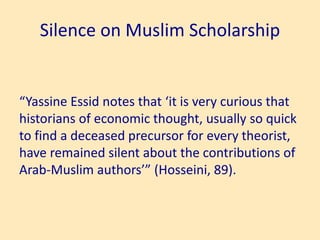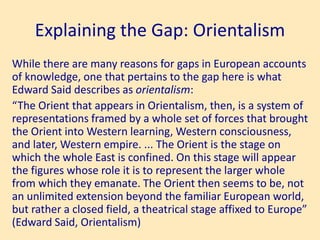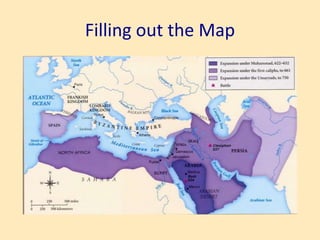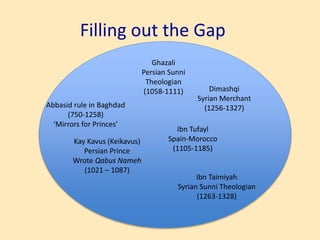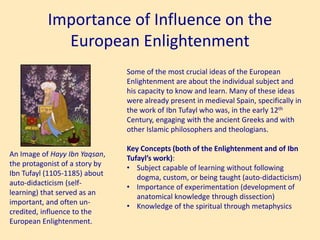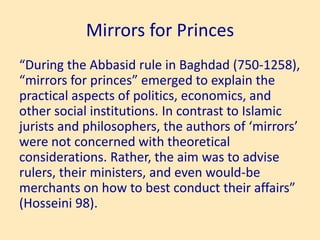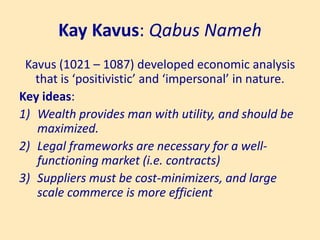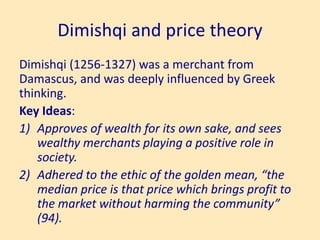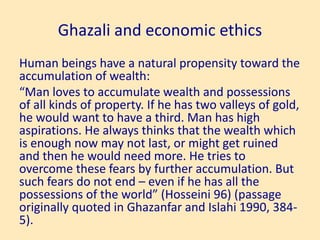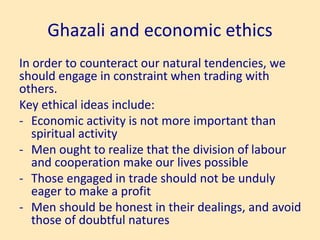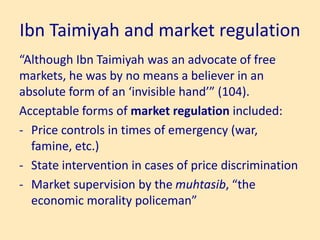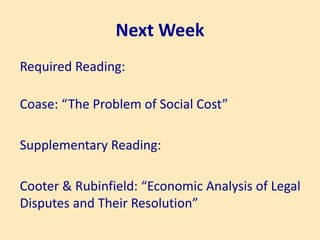This document provides an overview of topics covered in a lecture on mainstream economics, including:
- The concept of rational economic man and how it forms the basis of mainstream economic theories.
- Key assumptions in mainstream economics around self-interest, utility, and marginal utility.
- The concept of Pareto optimality and how it relates to efficiency.
- It also discusses Islamic economic thinkers during the alleged "Great Gap" in economic thought between ancient Greece and the European Enlightenment, including their contributions to ideas around markets, ethics, and regulation. Specifically, it outlines the works and ideas of Ghazali, Dimishqi, Ibn Taimiyah, Kay Kavus, and Ibn Tuf
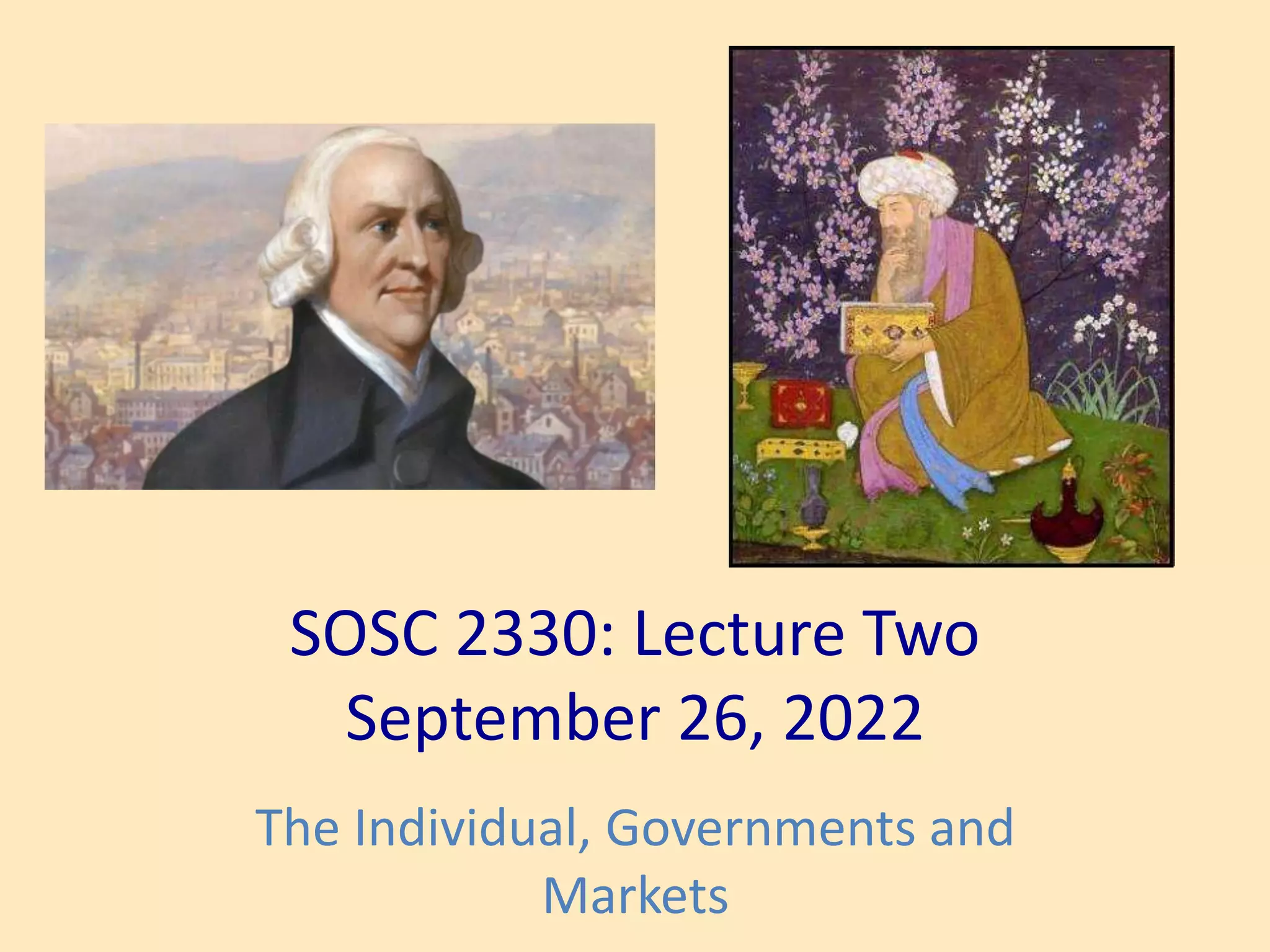
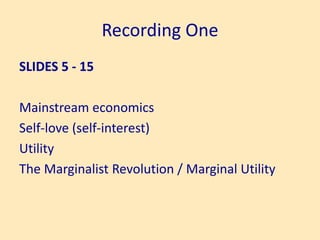
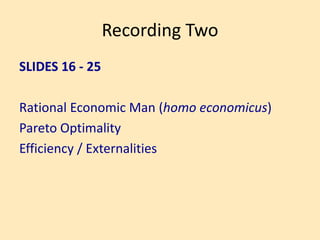
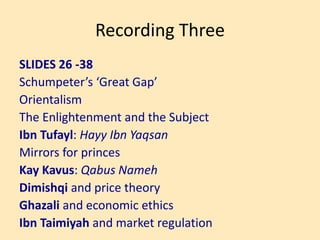
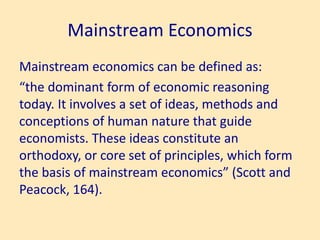
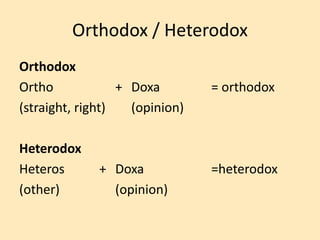
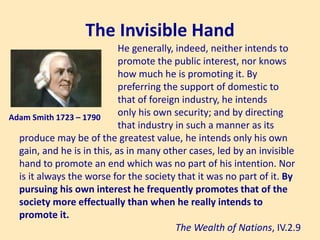
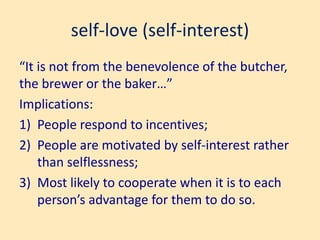
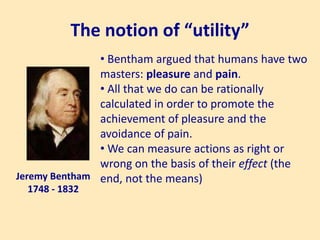
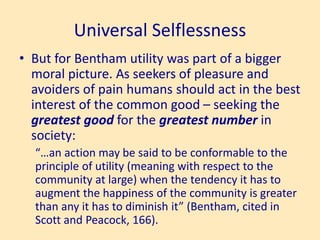
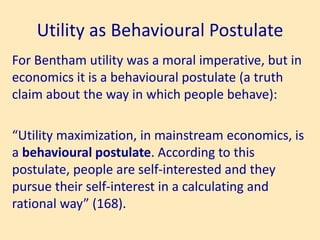
![Utility as Behavioural Postulate
“..assuming that most human beings are rational
economic beings who possess the attributes of
homo economicus makes it easier to fit them into
mathematical models. […] most mainstream
economists assume that human beings think of
their advantage and self-interest in terms of
quantity and price, and since price can be
measured, we can then start to think about
economics in mathematical terms” (167).](https://image.slidesharecdn.com/l2-sosc2330lecture22022-230215090959-265749bb/85/L2-SOSC-2330-Lecture-2-2022-pptx-12-320.jpg)
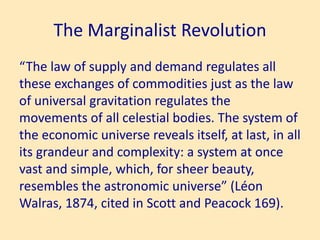
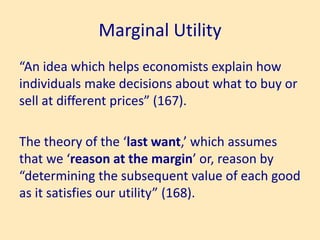
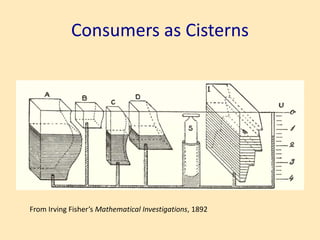
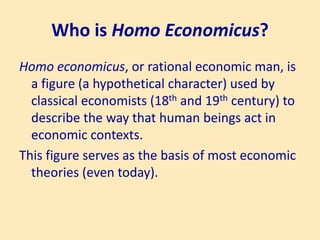
![Robinson Crusoe
“Who is Homo Economicus? Originally he was a
fiction invented by economists. Their model was
a character from the novel Robinson Crusoe by
Daniel Defoe, imagined as a metaphor for an
Englishman discovering a virgin land (in all
senses of the term – with no inhabitants, no
past, on the American model) and leading a
‘rational’ life. […] In all circumstances Robinson
Crusoe tried to maximize is wellbeing, like a firm
that maximizes its profits” (Cohen, 15).](https://image.slidesharecdn.com/l2-sosc2330lecture22022-230215090959-265749bb/85/L2-SOSC-2330-Lecture-2-2022-pptx-17-320.jpg)
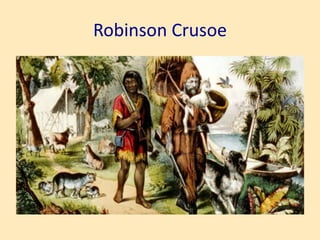
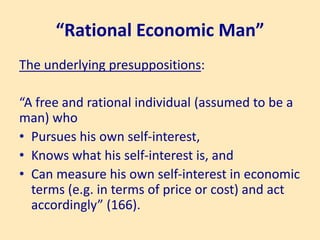
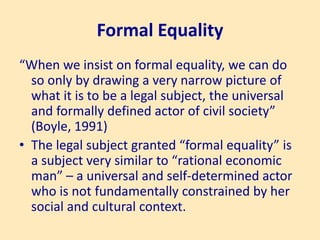
![Pareto Optimality
Vilfredo Pareto
1848 - 1923
• Pareto optimal allocation
(or Pareto Efficiency): “we
cannot reallocate resources
to improve one person’s
welfare without impairing at
least one other person’s
welfare”
• Pareto improvement:
“where a change in resource
allocation is preferred by one
or more […] and opposed by
no one” (Rhoads, 63)](https://image.slidesharecdn.com/l2-sosc2330lecture22022-230215090959-265749bb/85/L2-SOSC-2330-Lecture-2-2022-pptx-21-320.jpg)
